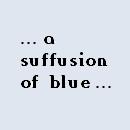RE:
3. LZMA2 Compression
WinBuilder 082 compresses attached file with deflate (used in .zip, .gz) algorithm.
For better compression rate, PEBakery now supports LZMA2 (used in .7z, .xz) algorithm.
Ex) Encode command was updated, see manual
As often happens, some critique. ![]()
![]()
The "embedding" inside a .script of a files was (originally) intended in Winbuilder as a quick way to "attach" something (very small in size) within the .script to avoid cluttering the "source tree".
Historically a large number of developers (wrongly) used it to embed in .scripts every kind of (large) program, often embedding in .scripts something non-redistributable or of very dubious source, this new feature seems like another incentive to put inside the .script every kind of stuff, making stupidly large .scripts, including MB's of encoded data.
If the feature was used "as intended" here should be no particular issue with old zlib2 compression because the amount of compressed data should be very little.
Anyway it makes (to me) little sense to offer an option that breaks so dramatically the compatibility with Winbuilder and - possibly - using yet another format.
For Winbuilder .script embedded files we managed (after as usual quite a lot of bickering) to obtain a self-standing de-encoder/decompressor (some references here):
http://reboot.pro/to...elease-unwbzip/
Maybe it is the case (if needed) of releasing a corresponding similar tool for this new format (possibly with a simpler syntax, avoiding the *need* of a half-@§§ed batch to actually use it) ![]()
![]()
Wonko













